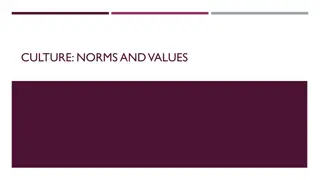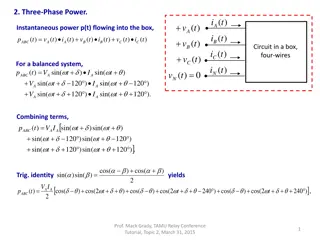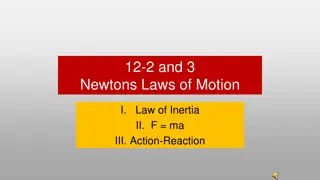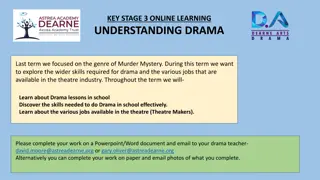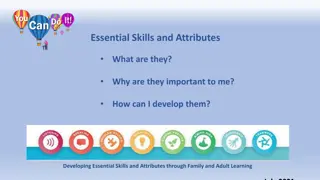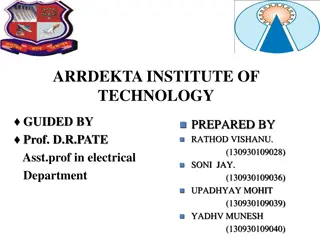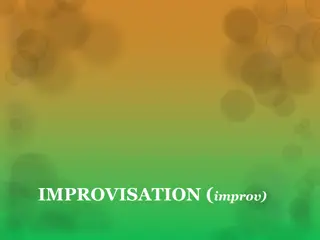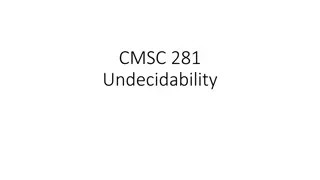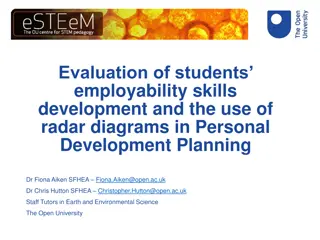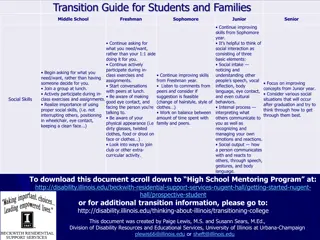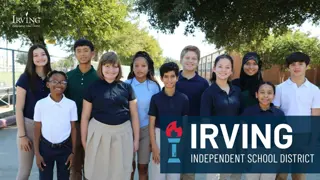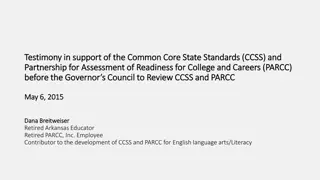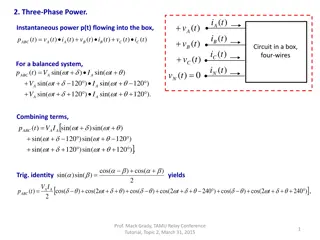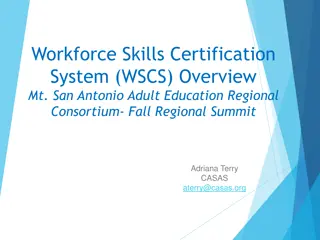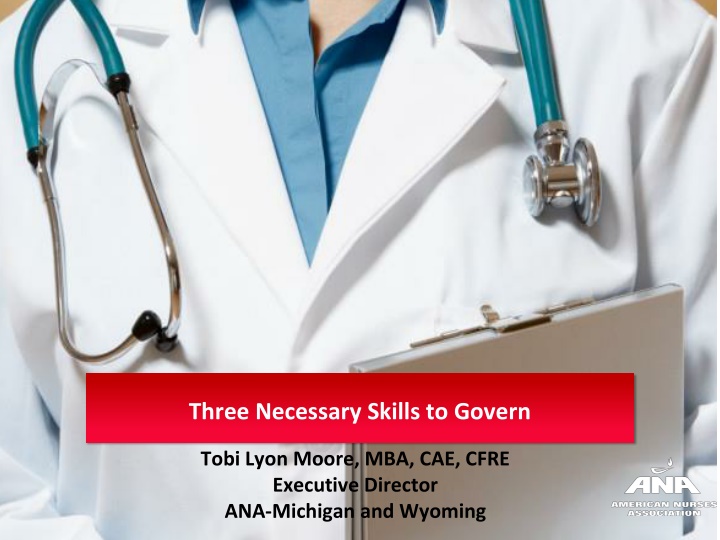
Essential Skills for Effective Governance in Organizational Leadership
Explore the vital skills needed for effective governance in organizational leadership, including building strong relationships, distinguishing between governing and managing, and focusing on leadership and planning. Discover how to link with members as owners, uphold board process discipline, and conduct well-planned sessions to enhance governance effectiveness.
Download Presentation

Please find below an Image/Link to download the presentation.
The content on the website is provided AS IS for your information and personal use only. It may not be sold, licensed, or shared on other websites without obtaining consent from the author. If you encounter any issues during the download, it is possible that the publisher has removed the file from their server.
You are allowed to download the files provided on this website for personal or commercial use, subject to the condition that they are used lawfully. All files are the property of their respective owners.
The content on the website is provided AS IS for your information and personal use only. It may not be sold, licensed, or shared on other websites without obtaining consent from the author.
E N D
Presentation Transcript
Three Necessary Skills to Govern Tobi Lyon Moore, MBA, CAE, CFRE Executive Director ANA-Michigan and Wyoming
Governing is About Relationships Relationship of the Board: To the membership Management team To each other 2015 PRESIDENTS IMMERSION COURSE
Governing vs Managing Governing is NOT Managing. 2015 PRESIDENTS IMMERSION COURSE Seeing to it that the organization achieves what it should and avoids unacceptable situations. A working board brings project management under their wing. But project management is not governing; it is an operational function.
Governing vs. Managing 2015 PRESIDENTS IMMERSION COURSE Outside (Check) Outside (Plan) Take Action Link to Deliverables and Outcomes Analyze Parts Clarity of Purpose Work IN the Enterprise Work ON the Enterprise Check ON the Enterprise
Leadership and Governing 2015 PRESIDENTS IMMERSION COURSE The primary role of leaders is Planning and Change. Governing always holds the whole organization as primary and the parts secondary.
Three Necessary Skills to Govern 1. Linking with the Members as Owners 2015 PRESIDENTS IMMERSION COURSE 2. Board Process Discipline and behaviors that demonstrate accountability to each other, to the members and to the staff. 3. Well-planned sessions
Role of a Governing Board Membership Linkage actually linking with members through listening and reporting out. Policy Develeopment responsible for its own development, job design, discipline, and performance. Articulate the mission of the organization and sustain the vision. Assurance of organizational performance from an arm s length position. Link with external environment. 2015 PRESIDENTS IMMERSION COURSE
Role of the Chair Assuring integrity of the governing process 2015 PRESIDENTS IMMERSION COURSE Spokesperson to outside parties, representing the single voice of the board Create an environment where people get energized, not burned out
Board Process Board work is a TEAM process 2015 PRESIDENTS IMMERSION COURSE A sharing of thought process, NOT simply getting through an agenda Disciplined dialogue Your job in group process
Accountability The Board needs to find a way to govern coherently and accountably. Develop the courage to hold itself AND each Board member accountable in the process 2015 PRESIDENTS IMMERSION COURSE
The Board Meetings 2015 PRESIDENTS IMMERSION COURSE BORED OR BOARD IT S UP TO YOU?
Well-Planned Sessions Create an active agenda to focus on, rather than a passive agenda. The board has only about 24 -36 hours per year to do its entire job. 2015 PRESIDENTS IMMERSION COURSE Orchestrate the agenda to achieve a dynamic exchange of ideas and deliberation.
Well-Planned Sessions Separate your governing agenda from your project management agenda. 2015 PRESIDENTS IMMERSION COURSE Recommendations: Use a consent agenda Allow time for board education, thinking, analysis and dialogue Board self-assessment If a report can be put in writing, do so. Read the reports prior to the meeting and only discuss exceptions.
Approval of the Agenda Consent Agenda Batched items that are non-controversial, routine, and do not need conversation. All items in writing and must be read in advance of the meeting. Board Capacity-Building Discussion/Board Education Financial Statements Action Items Things that need to be voted on that require discussion. Our Future Positioning Learning/discussion about an issue critical to the future, as determined by the Board s annual work plan/strategic plan. Operational Concerns Tracking progress with strategic plan Update from staff Project management from committees or councils The Board does NOT approve committee or staff reports. Board Self-Assessment Announcements Adjournment
Boards Annual Plan What is the impact/results we wish to make this year because we are doing the right work as a board? What critical issues do we choose as our priority topic for exploration this year that will impact our members or the organization? What standards of service do we need to address this year to improve our relationship with our membership? What do we need to learn from our members as owners this year to assure that we are in alignment with their values? At the end of the year, how will we know that we were successful in governing this year? What will be our metrics? What governing/leadership competencies do we need to build muscle in to improve our governance capability as a group authority? 2015 PRESIDENTS IMMERSION COURSE


